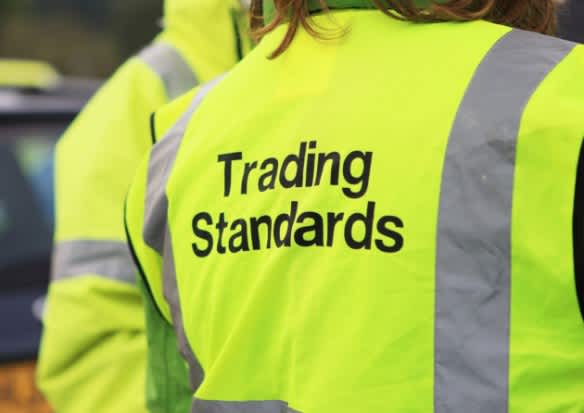Residents have been warned to be on their guard against criminals and scammers exploiting the coronavirus situation.
In Oxfordshire, County Council’s Trading Standards has received reports of scams targeting people via emails, text messages, and on the doorstep.
There are many genuine community efforts to help residents; to provide good quality advice and support. But unfortunately, not everyone is trustworthy, and some people will take advantage of this unprecedented situation.
Councillor Judith Heathcoat, Oxfordshire County Council’s cabinet member for Community Safety, said:
“It is hard to believe that some people will look to take advantage of the situation our country is facing, but unfortunately this is a reality.
“Where possible, Trading Standards will pursue and tackle these despicable individuals, but preventing people becoming victims in the first place is key.
“Be a good friend; help protect your family, friends and neighbours from scams.”
Jody Kerman, Head of Oxfordshire County Council Trading Standards, said:
“Action Fraud has recently reported that coronavirus-related fraud reports have increased by 400% in March.
“These scams come in many different guises so, before taking any action or agreeing to an offer: Stop, ‘take five’, and discuss with a trusted friend or family member.
Here are some of the scams Trading Standards is aware of…
- Remember, criminals come in all shapes and sizes and can contact you at the door, by phone, post or online:
- Be aware of people offering miracle cures or vaccines for coronavirus – there is currently no specific treatment for coronavirus (COVID-19).
- People impersonating healthcare workers, claiming to be offering ‘home-testing’ for coronavirus – this is a scam and these kits are not currently available to buy.
- Emails offering a refund on council tax, utility bills, or similar are usually bogus and they are just after personal and bank details.
- There are lots of fake products available to buy online that say they can protect against or cure coronavirus. These will not help and are designed to take your money.
- There are new mobile phone applications that claim to give updates on the virus, but instead they lock your phone and demand a ransom.
- People offering to do shopping or collect medication, asking for money upfront and then disappearing.
- People offering home cleaning services.
Remember: Banks or the police will never ask for account details over the phone.
Tips to avoid being scammed:
- Be cautious and listen to your instincts. Do not be afraid to hang up, bin it, delete it, or shut the door.
- Take your time; do not be rushed into making a decision that you will probably regret.
- If someone claims to represent a charity, ask them for ID. Be suspicious of requests for money up front. If someone is trying to tempt you into accepting a service, they are unlikely to be genuine.
- Check with family and friends before accepting offers of help if unsure.
- If online, be aware of fake news and use trusted sources such as .gov.uk or NHS.uk websites. Type-out email addresses. Don’t click on links in emails.
- Only purchase goods from legitimate retailers and take a moment to think before parting with money or personal information.
- Protect your financial information, especially from people you do not know. Never give your bank card or PIN to a stranger.
- Know who you are dealing with. If you need help, talk to someone you know or use the contact numbers provided below.
Contact information:
- If you think you have been scammed, report it to Action Fraud: 0300 123 2040.
- If you need advice, call Citizens Advice Consumer Helpline: 0808 223 1133.
- If you are in immediate danger, contact the police on 999.
- Contact your bank if you think you have been financially scammed.
- Age UK runs a telephone support service (for older people and carers): 01865 411288.
- To learn more about different types of scams and how to protect yourself and others, visit www.FriendsAgainstScams.org.uk and complete the free online training.








